Cannes Days 7 & 8: Portraits, Peaches And Vacations In Portugal
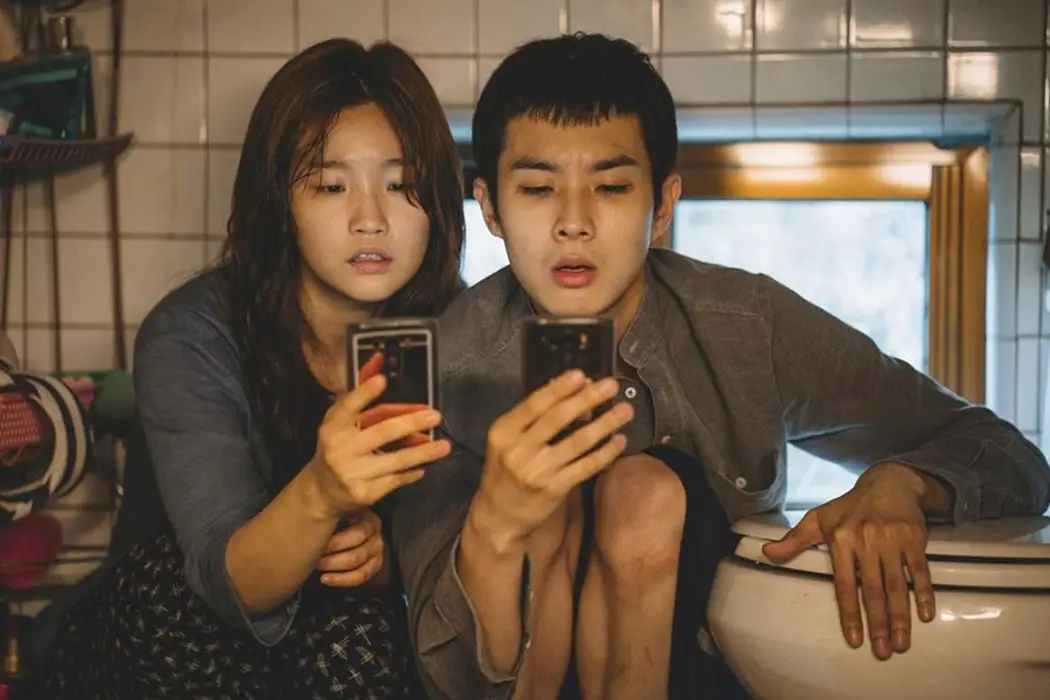
Gus is a 3rd year English Lit and Creative Writing…
Alistair Ryder: We’re back with more reviews from Cannes! This year, the glamour of the world’s most famous film festival was defeated by some of the worst spring weather the town has seen in decades – but luckily, only fools come here to go to the beach, as we spent our days in dark rooms, watching as many films as we possibly could.
This time around, that worked better for the films Gus chose to review; he got to sink his teeth into two of the best films in the competition (and one of the worst), whereas I tried to assess three of the most forgettable films in one of the festival’s most mediocre recent lineups.
Portrait of a Lady on Fire (Céline Sciamma)
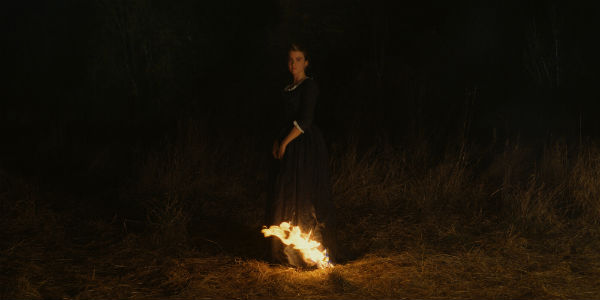
Gus Edgar-Chan: This year’s Competition section has been home to revenge, revolution, zombies and zeitgeists, but none have exactly impressed me. Céline Sciamma’s gorgeous Portrait of a Lady on Fire is none of those things, which may go some way to explain why I’ve taken to it; a welcome tonic to a slate of genre fare.
It’s a simple story, executed with the elegance of a seasoned painter: in 18th century Brittany, Noémie Merlant’s Marianne is tasked with befriending Adéle Haenel’s Héloïse and painting her portrait in secret. Héloïse is engaged to a rich nobleman from Milan, and refuses to pose out of futile rebellion. But as Marianne lingers on the contours of her face and the shape of her figure, an innocent act of studying burgeons into something much more potent.
If the trajectory of this forbidden romance doesn’t deviate from any expectations, the power is all in that finality’s inevitability. As Marianne reminds Héloïse during her first (scrapped) go at the portrait, ‘There are rules. Guidelines.’ The love the two share doesn’t comply with an 18th century ethos.
Sciamma finds mileage out of drawing comparisons between the act of painting, and the mentality behind obsession and desire. If Call Me By Your Name is a finished piece, Portrait of a Lady on Fire is the process behind it: the scribbled notes; the sketched outline; the first lick of paint.
In other words, romance is equated with observation and attention, painting an image of someone from a lovestruck perspective. For a few days, Brittany becomes a safe haven, a way for two women to let loose their desires free from the oppressive realm of men. Of course, it doesn’t last, but as the film’s final scene plays out—one of two jaw-dropping uses of diegetic music—we’re reminded of the power of memory, and the use of a painting to cement it in place.
Adam (Maryam Touzani)
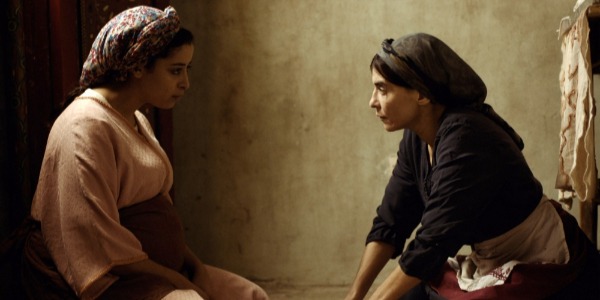
Alistair Ryder: Maryam Touzani’s directorial debut has all the ingredients we’ve come to expect from poverty porn cinema designed to tug at the heartstrings of wealthy liberal audiences at elite film festivals the film’s protagonists could never visit. Here, we follow Samia (Nisrin Emmadi), a pregnant homeless woman who comes knocking at the door of Abla (Lubna Azabal), who initially refuses to let her enter her Casablanca home. But after seeing her sitting on the street outside her house, hastily changes her mind – and reluctantly, allows her to start helping out in the bakery she runs from her home, while Samia helps Abla come back out of her shell after the emotional torment of her husband’s death.
It’s to Touzani’s credit that her film doesn’t follow the same misery porn footsteps as recent films such as Capernaum, with an aim of capturing the small moments in this unlikely friendship as opposed to tugging on our heartstrings with endless emotional manipulation regarding Samia’s living situation. It’s the moments where the group are cooking, or letting Abla’s young daughter Warda (Douae Belkhaouda) feel Samia’s pregnant belly, when the film feels the richest. But these moments are sporadic, as the drama is largely uneventful, the characters too emotionally withdrawn to provide an inviting character study – and Touzani’s direction not proving to be altogether memorable outside of the charm of the film’s small scale moments.
Adam isn’t without merit, but it proves to be far too slight in its drama to be remotely emotionally involving. There’s a beautiful story lost in the mix, and weirdly, it’s all because Touzani has commendably tried to avoid conventional tear-jerking moments this premise would suggest. She’s gone too intimate, to the extent her film barely registers.
Young Ahmed (Jean-Pierre & Luc Dardenne)
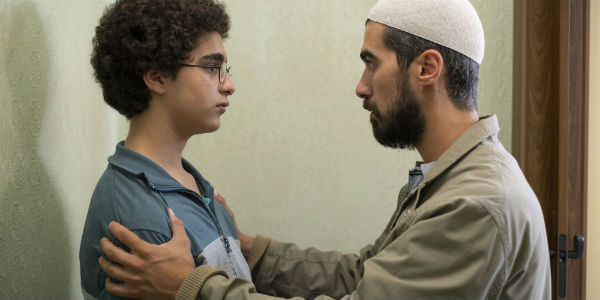
Gus Edgar-Chan: Doomed from its premise alone, Young Ahmed is the misguided and often offensive portrayal of a young Muslim extremist, directed by The Dardenne brothers, two white 60-somethings. It tells the story of the titular Ahmed (Idir Ben Addi), an impressionable teenager whose severe take on the Qu’ran, under the guidance of an imam (Othmane Moumen), leads him to attack his school teacher with a knife.
This is only Young Ahmed’s first act, but the premise bears irreplaceable cracks already. It’s hard not to view the Dardennes’ filming of Ahmed’s religious rituals as a sort of fetishisation of a culture they don’t belong to, framed with curiosity instead of a deep-rooted understanding. The pair don’t manage to grapple with his headspace whatsoever, leading to the boy being defined by his ideology alone. He exists as a blank slate hellbent on extremist bloodshed, because the directors can’t conceive of a figure more complex than that.
Post-premiere, the directors have dubbed Young Ahmed as ‘a call not to give up on the ‘lost’ Muslim youth’, but that’s exactly what they’ve done here: Ahmed is someone unable to reform (in spite of the many all-white helpers who try to guide him towards salvation), and his pseudo-redemptive endpoint plays out like an afterthought. In turn, whether intentionally or otherwise, The Young Ahmed feels like fear-mongering, a reminder that a religion can turn dangerous with one bad egg. Ahmed is shown to be able to be persuaded into murder, but the fact that he can’t be convinced out of it is a damning misstep.
Frankie (Ira Sachs)
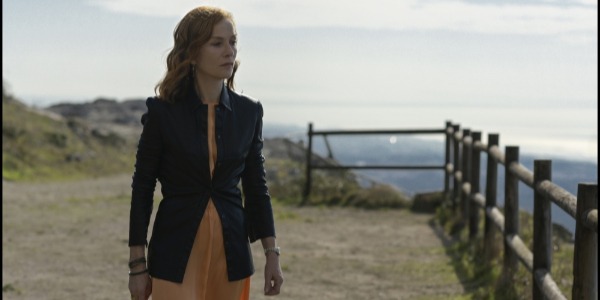
Alistair Ryder: The films of Ira Sachs revel in a cynical view of late capitalism, that can see people fired from their jobs just because their employer disagrees with their sexuality (Love is Strange), or that accelerating gentrification can force a family out of the home where they’ve lived for generations (Little Men). What’s odd about Frankie is the fact it deviates from taking a cynical look at this worldview to placing it on the same dramatic pedestal as a devastating human tragedy unfolding in agonising real time. If Sachs was attempting to be more subtle in his skewering of first world problems, placing the difficulties of buying a new house on the same level as having a few months left to live, then it barely registered – the inherent drama of the central character’s living situation undermined by the odd intrigue at the significantly lesser problems of everybody in her orbit.
The always reliable Isabelle Huppert stars as Frankie, a famous French actress who has gathered her extended family and friends in Portugal for one last holiday, avoiding the elephant in the room that she won’t live to the new year at all costs. These include her husband Jimmy (Brendan Gleeson), her former makeup artist Ilene (Marisa Tomei), troubled son Paul (Jérémie Renier) and stepdaughter Sylvia (Vinette Robinson). As Frankie tries to coordinate the perfect last holiday, resentments within the family, and petty squabbles derail her plans for one last peaceful get-together.
It’s somewhat incomprehensible that a film that appears to be about a family’s matriarch making peace with her limited time left in the world would be an archetypal first world problems film, but Sachs’ main issue is giving equal precedence to the minor problems each character has. Ilene has just turned down her boyfriend’s proposal, while Sylvia is tearing her own family apart with her desire to move house – issues that feel distractingly minor when juxtaposed with the sad news Frankie has to live with. Gleeson’s tender portrayal of a man coming to terms with his wife’s death is quietly heartbreaking, but loses its impact when other family member’s minor problems are placed on the same level.
Again, there is no hint that this is satire at first world problems, where the worry of moving house is considered a fate equal to passing away – and if it is a subtle comedic jab at this notion, it’s too underwritten to properly land its aim. Which is a shame, as Sachs is normally a safe pair of hands with intimate character studies, but here, he’s decided to add on the problems of an extended family instead of solely focusing on the genuinely moving story of the couple at its centre.
Fire Will Come (Oliver Laxe)
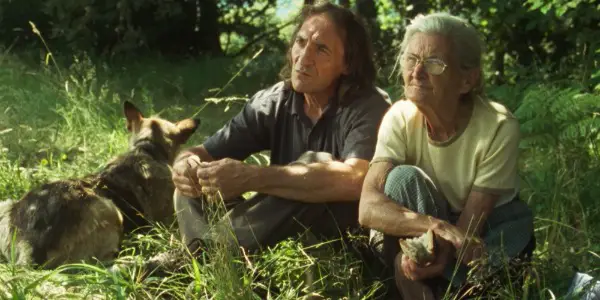
Alistair Ryder: One of the joys of writing film criticism at a major festival is having to file instant reactions on films that could potentially take years for audiences to fully comprehend. The latest film by Oliver Laxe falls into this category – on a narrative level, the story is a simple character study, but by transforming it into a meditative, atmospheric mood piece, it’s hard to not feel there was something else bubbling under the surface, just out of grasp.
The film opens with its most stunning visual; in the heart of the forest, in near pitch black, we see numerous trees uprooted and collapsing, slowly revealing the digger that’s taking them down. The story instantaneously switches to meet Amador (Arias Amador), who has just been released from prison for starting a fire in the protected landscape, sent back to live with his elderly mother Benedicta (Benedicta Sanchez) in the rural landscape he sent into a state of disrepair. But when a fire breaks out in the nearby forest once again, he falls back under suspicion again.
Of course, when watching Fire Will Come, it can be very easy to overlook the particulars of the narrative due to the opaque nature in which this story is told. In one sequence, which seems to be the integral thesis of the movie, Amador is asked what he thinks of the music playing in the car, saying he likes the sound but can’t understand the words. The response is purely that if you are attuned to the music, comprehending what the lyrics are saying is a secondary concern – and Laxe uses that approach here, creating an atmosphere that never withholds information so much as it writes around it. The audience is enveloped in the film’s headspace, without ever delving too deep into that of the central character.
Fire Will Come is a difficult film to assess after just one viewing. The astounding visuals are easy to praise, but it can be so easy to get swept up in the atmospherics (think a more accessible Carlos Reygadas) that the complexities of the character study feel like an afterthought placed next to them.
Parasite (Bong Joon-ho)

Gus Edgar-Chan: Bong Joon-ho returns to his native language for a moving, swooning, deliriously entertaining and stupendously hilarious take on, er, class divide and how an oppressive system forces a working class into nefarious means of survival.
Quite simply, Parasite is the best film in Cannes’ competition lineup. It follows a Korean family with a low social status, income, and housing situation—their ceiling peeks just above ground level—who manage to infiltrate a wealthy family’s daily routine via assuming their prior staff’s roles. To say more would be to risk spoiling the film’s delectable twists and turns, which veer from heist exploits to devastating melodramas and a balls-to-the-wall finale, while boasting shades of Jordan Peele’s Us.
Bong’s satirical takedown of a country’s class system may be a rollicking ride, but the director doesn’t dilute his intentions by skimping on the feel-bad. There’s an undercurrent of festering anger to proceedings, and certain images—the coded flashing of a lightbulb, a couple dancing together in sunlight—are unbelievably moving.
Parasite’s analysis of these class politics is deceptively complex, a layered condemnation of privilege, power, and the lengths people will go just for a chance of equal footing. Pointedly, the film’s rich family are not overt villains—they do nothing of real malice—but that act of doing nothing at all is what Bong is looking to interrogate. The family’s children, even, are unaware of the differences between the two families, suggesting that the act of belittling based on class is something conditioned into us.
Parasite is a vital, extraordinary slice of blood-boiling entertainment, surveying human ambition to piece together exactly why a class system is failing an entire country.
Does content like this matter to you?
Become a Member and support film journalism. Unlock access to all of Film Inquiry`s great articles. Join a community of like-minded readers who are passionate about cinema - get access to our private members Network, give back to independent filmmakers, and more.
Gus is a 3rd year English Lit and Creative Writing student who loves everything film and still doesn't understand why he didn't study that instead. He is the co-editor for Venue, the arts supplement of his Uni's newspaper, and has written for Little White Lies, ScreenRant, Dog and Wolf, BritFlicks and Outline Norwich.












